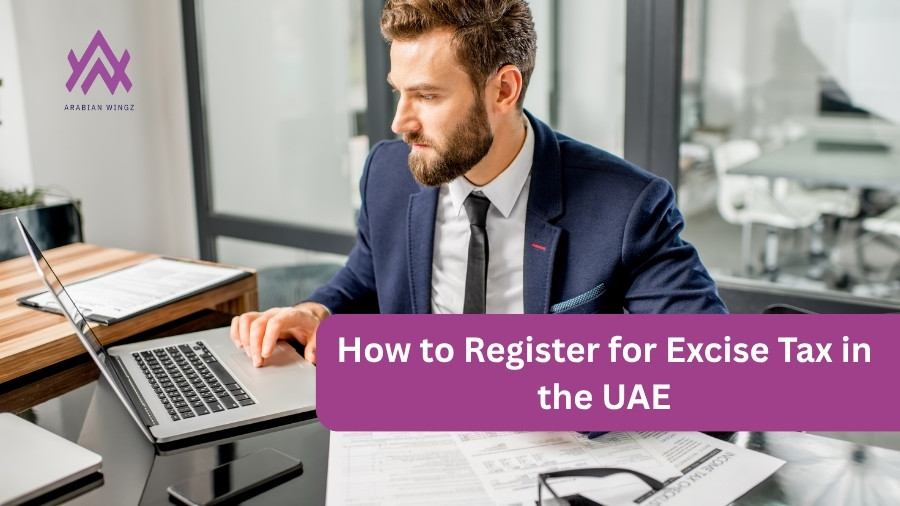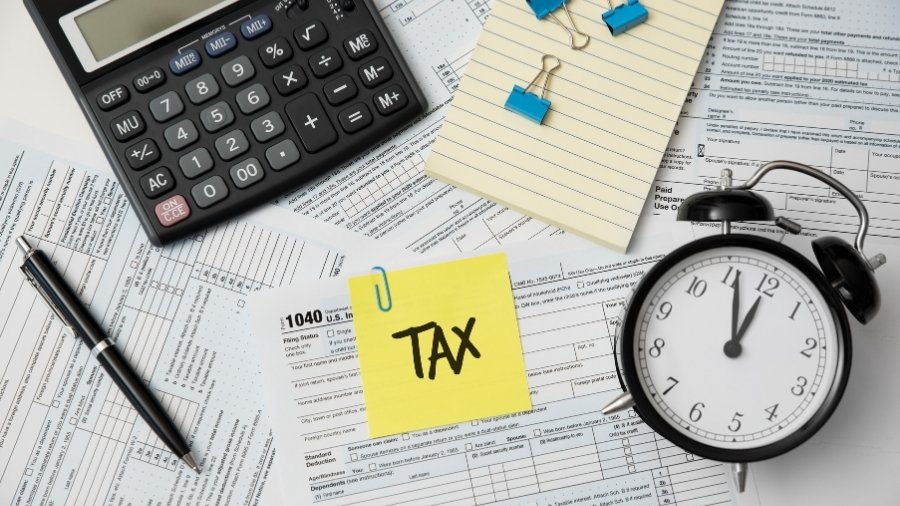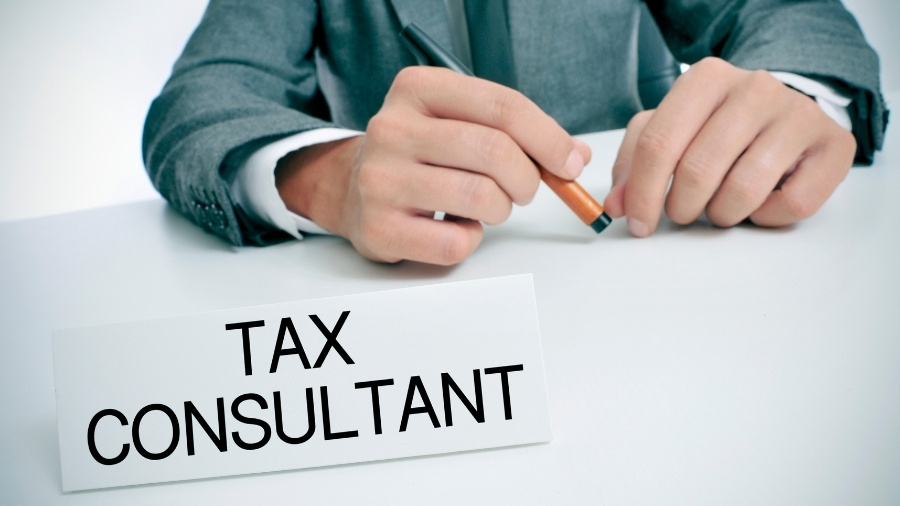- info@arabianwingzuae.com
- +971566621785
- Mon - Sat 9:00 AM - 6:00 PM

FTA announces Corporate Tax Registration Deadline – 90 days from Date of Incorporation/MOA. AED 10k penalty for late registration.

As the UAE continues to position itself as a globally competitive business hub, excise tax has emerged as a key element of its tax system. Introduced in 2017, this tax forms part of the nation’s efforts to support public health goals and align with international tax standards.
Any businesses dealing with excise goods must comprehend and complete the Federal Tax Authority (FTA) registration process. Yet many companies delay this step, resulting in compliance concerns, penalties, and operational delays.
This guide by Arabian Wingz provides a simple step-by-step guide on how to achieve excise tax registration Dubai and across the UAE, so that your company remains completely compliant with all FTA regulations.

Excise tax is a selective tax applied on specified commodities that are considered damaging to public health or the planet. It is a single-stage tax, meaning it is typically applied only once at the point of production, import or when the goods are released for consumption. This is different from Value Added Tax (VAT), which is applied at every point in the supply chain.
The primary goal of excise tax is to discourage the consumption of these products by making them more expensive for consumers. The government then uses the money raised to pay for public services like healthcare, environmental projects and others to make a more sustainable and healthier society.
The current list of excise goods subject to taxation includes –
Proper tax registration in UAE is the first step toward legal and financial compliance. Businesses that are required to register for excise tax but fail to do so can face significant administrative penalties and fines from the FTA. These fines can be high and have a negative effect on a business’s reputation and financial stability. The fines can be for various infractions, including –
By completing your UAE tax registration correctly and on time, you protect your business from these risks and build a strong foundation of trust and reliability with the national authorities.
The obligation to register tax UAE for excise tax falls on any individual or business engaged in the following activities related to specific goods –
There is no minimal requirement for UAE tax registration. If you fall into any of the above categories, you are legally required to register, regardless of the volume or value of the goods.

The Federal Tax Authority (FTA) is the government entity that is responsible for managing, collecting and enforcing taxes in the UAE, including excise and VAT. All excise tax-related activities, from initial registration to filing returns and making payments, are managed through the FTA’s official digital platform, known as EmaraTax.
The FTA has established a clear, user-friendly online process to facilitate tax compliance for all businesses. The EmaraTax portal is the central hub where you will submit your registration application, upload necessary documents and manage all your tax-related affairs.
To ensure a smooth and efficient registration process, it is vital to have all the necessary documents prepared in a digital format before you start. The following is a general list of documents you will need to upload to the EmaraTax portal –

The entire registration process is conducted online via the EmaraTax portal. Here is a clear, step-by-step guide to navigate the application successfully –
If you don’t already have one, the first step is to create an account on the FTA’s e-services platform. You will need to submit your company information, a current email address and password that’s secure. The system will email you a confirmation link to activate the account.
When your account is active, log in to the EmaraTax portal. Navigate to the “Taxable Person” dashboard and select the option to register for Excise Tax. This will open the online application form.
The application is divided into several sections. You must complete each one carefully and accurately.
Before submitting, meticulously review all the information and uploaded documents. Ensure everything is correct and complete to avoid delays. Once satisfied, submit the application. You will be given a tracking reference number.
The FTA is going to examine your application. This process can take several days. They may contact you to request additional information or documents. Your EmaraTax dashboard allows you to view the status of your application. You will get your Excise Tax Registration Number (TRN) once your application has been approved.

At this stage, several important responsibilities begin to apply to ensure you meet all regulatory requirements, which are as follows –
These are a few of the most typical errors that companies make when registering for excise taxes –

The process of tax registration in UAE, especially for excise tax requires a full understanding of the legislation and precise attention to detail. For many businesses, particularly those new to the UAE market, find it beneficial to enlist the help of a professional tax consultant. An expert can –
At Arabian Wingz, we make excise tax registration simple, fast and fully compliant. With expert guidance, hands-on support and deep knowledge of FTA regulations, we ensure your business meets all legal requirements. Contact Arabian Wingz today and let us handle the tax difficulties while you focus on developing your business.
Also Read: How to Register for VAT in Dubai, UAE: Step-by-Step Guide
How to check UID Number in UAE
Excise tax applies to specific goods that are considered harmful to public health or the planet as defined by Cabinet Decision No. 52 of 2019. These include –
Sweetened Drinks
Tobacco and Tobacco Products
Carbonated Drinks
Energy Drinks
Electronic Smoking Devices and Liquids
Yes, if your free zone company deals with excise goods by importing, producing or storing them in a way that makes them taxable in the UAE, then you must register for excise tax.
Once you submit a complete and correct application, the FTA usually takes a couple of business days to review and approve it, provided all documents are complete.
If you don’t register for excise tax when you’re supposed to, the FTA can impose a penalty up to AED 10,000 for late registration and possible business restrictions.
Yes, you can update details like business activities, excise goods or contact information via the EmaraTax portal. Notify the FTA promptly of changes to ensure compliance.





